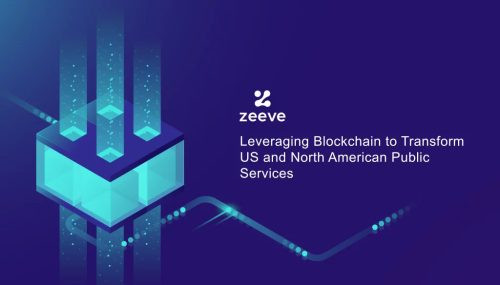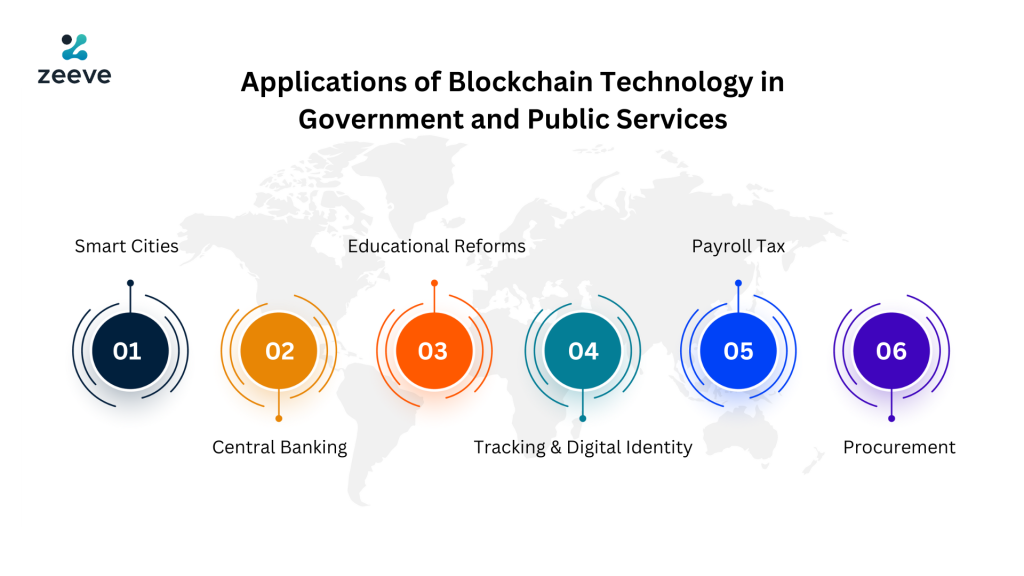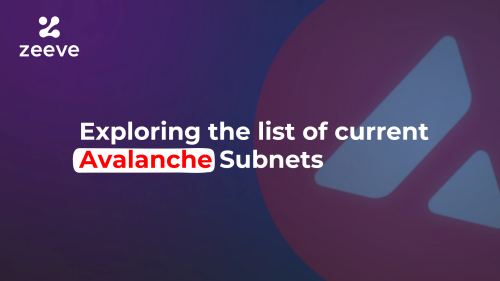
Leveraging Blockchain to Transform US and North American Public Services
Systems were operated in the 19th century as a centralized structure. However, it has become obsolete and no longer reflects the high-technology world we live in. Additionally, governments around the world are testing to change according to today’s legacy systems and societal norms.
But, there are some things that could be improved with the current bureaucratic model of the government. The corruption and reduced trust in being able to protect data. The cost level is high in managing the ability to store and manage transactions. The data may get misused, lost, or unable to protect the citizens’ data.
With all the dissatisfaction, it is a crucial time to help increase the government’s performance. A new vision for the government is needed. Hence, blockchain for the government and public services in US and North America is much needed. Earlier, the qualifications were identified by the organizations’ rules rather than by individuals. The organization was based on a hierarchical model.
North America happens to be the largest market, with a share of 37%. The growth in the market comes from the convergence of technologies such as AI, ML, and IoT. The US federal government is working to create opportunities for blockchain vendors and the market. This is being done so that the Government and public agencies can harness the power of the blockchain.
Adoption of Blockchain in North America
Until now, all organizations worldwide have been struggling with silos of information. Moreover, the centralized system is costly and insecure. What the introduction of blockchain to an ecosystem does? It offers agility and a cost-effective structure. Currently, the US government and the countries in North America have recognized the potential of Blockchain for government organizations.
The Joint Economic Report of the US government focuses on the usage of blockchain by various government and public organizations. The usage of blockchain in any organization, whether government or private, can help them with three major areas — value transfer, smart contracts, and record keeping.
In Delaware and Illinois, many comprehensive programs have been going on since 2018 to streamline the work and lower transactional costs. The US government is already working on the regulatory stance on adopting the technology.
With that being said, Wyoming happens to be the most blockchain-friendly state and has leadership in forming crypto-friendly laws. In Wyoming, US, there is a dedicated Center for Blockchain and Digital Innovation. Wyoming has blockchain-focused laws and recently passed a legal framework for DAOs. Overall, the US government is working swiftly to leverage blockchain technology for various use cases.
Applications of Blockchain Technology in Government and Public Services
Being encouraging regarding the blockchain and having legal frameworks for the adoption of blockchain. Here are some of the use cases of blockchain that North American countries can adopt to see a change in the efficiency of the organizations.
Smart Cities
As we know, smart cities require the management of data. Blockchain can be helpful in managing all the data easily. In the US, the state of Illinois is using blockchain technology to issue birth certificates. Blockchain technology has also proved to be a disruptor in the energy management field thus, transportation in the city can become efficient. Furthermore, Blockchain can help with mobility around the city. There will be peer-to-peer smart energy production, and there will be optimized routing.
Central Banking
Instead of settling interbank payments at the close of each day, real-time gross settlement requires them to be settled in real-time, as recorded by the central bank. As a result of blockchain, central banks can process RTGS at a faster pace while maintaining higher levels of security. Thus, 9 out of 10 major banks in North America are hopeful regarding the usage of blockchain technology in banking.
Educational Reforms
The maintenance of academic, and professional qualifications becomes cumbersome. While keeping it in an encrypted format, the security is enhanced, and there is less paperwork. The US government can use blockchain technology in STEM, data analytics, Machine Learning, and other fields. Blockchain is also a way to keep track of academic records.

Tracking & Digital Identity
Governments can use blockchains for digital identity management systems to reduce fraud and costs. Digital identity management becomes difficult as there is inaccessibility to digital identities. Blockchain resolves various issues via a self-sovereign identity. Since North America happens to be one of the places with the highest migration, keeping track of identities through blockchain becomes essential.
Payroll Tax
The matching of the tax data with the income tax with income transaction and calculating the tax would become efficient with the smart contracts. The blockchain also handles all the net salary and tax payments. The US government loses $1 Trillion due to tax cheats and inefficient management. Accounting firms in the U.S. and other countries can use blockchain to manage extensive tax collections.
Procurement
A tamper-proof record of all transactions is created using blockchain technology, simplifying procurement processes. The supply chain becomes transparent, and there is a record of every transaction. The blockchain allows the integration of other services as well as to the management of the supply line.
Why do North American Governments and Public Sectors need to adopt Blockchain technology?
Blockchain can essentially improve the performance of the government. Some benefits of using blockchain technology in government and public sector are
Building trust among the citizens
To re-develop trust among the public can be possible easily with blockchain technology. To see and verify data transparently through decentralization is the key feature of Blockchain. Independent verification for some citizen services has the solution of this technology.
By reducing the complexity, the chances of developing trust can be proven as a basic advantage to use blockchain technology for the government and public sectors. Creating an accountable and traceable record of the public has increased transparency, improved understanding, and built trust among the public.
Protecting the data and reducing the corruption
In today’s digital era, data breach has become a common issue. In the year 2017, the personal information of millions of Americans got exposed in the Equifax breach. Previously also, similar breaches kept happening with the citizens. The records are the primary and easiest attack for hackers, increasing corruption. But through the deployment of blockchain data structures, data can remain safe and protected.
In cybersecurity, the blockchain applications like providing strong encryption and verify data integrity and ownership. Additionally, blockchain can remove the need for unnecessary passwords and watch for malicious actions and anomalies.
Ameliorating efficiency and lowering the prices
For now, the time to manage incoming proposals is around 40 days. But with blockchain technology, the interval gets reduced to just 10 days. Thus, increasing the efficiency of the work culture for the government and public sectors. It is possible by reducing the final audit trial, increasing security and ensuring data integrity, and lowering the price rate.
Verifying transactions within minutes
Usually, it takes many hours or even days to check transactional procedures. But with the fast-paced blockchain technology, transactions check is possible within minutes. Hence, the customers remain satisfied by leveraging smart contracts and transferring funds swiftly and reducing the auditing time.
Future of Blockchain in Government & Public Services
Blockchain technology will reduce financial infrastructure costs by $20 billion. Continually, it will help in investment for government sectors across the world. With this modern technology, the citizens of the government will get more active information, feel digitally secure, and solve current issues. But still, in some of the public sectors, the growth may be slow, making it time-consuming for some to adopt along with solving issues.
Blockchain will bring more value to the North American Government by automating the processes and reducing friction in the traditional working process. With time the local government will have to adapt to the technology. Due to the immutable records, transparency will improve in governance. There will be a cut in administrative costs and better services for the public.
Partner With Zeeve
If you are located in North America and want to embrace blockchain technology, partnering with Zeeve would be beneficial. We have worked with several startups and support blockchain customization as per the requirement of an organization.
To know more about Zeeve, feel free to contact us. You will further get clarity if you will schedule a call with Zeeve and join us on Telegram and Twitter.





Responses